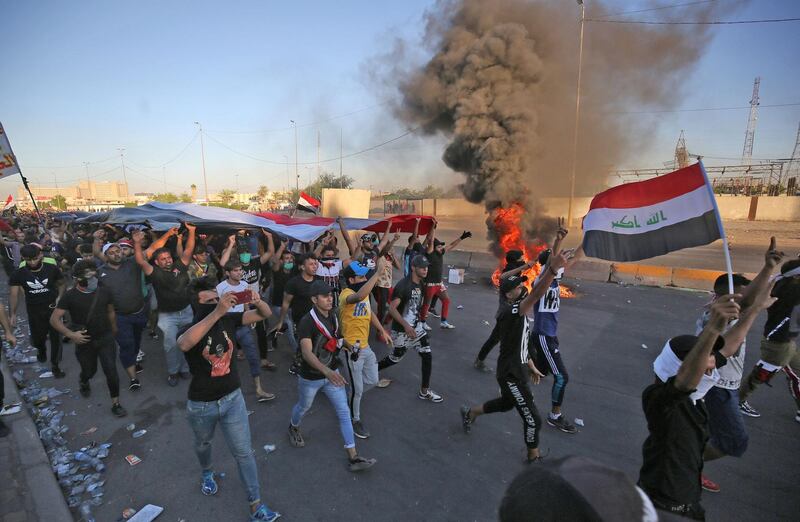A few days ago, Iraqis took to the streets to voice their anger about endemic corruption and a sluggish economy that has reduced many to living in dire conditions. But instead of addressing these legitimate concerns, authorities have attempted to contain the protests with a disproportionate use of violence. At least 93 people have been killed, possibly more, and around 4,000 have been wounded in just five days according to official figures, as security forces opened fire on mostly peaceful demonstrators. An internet blackout imposed by the government has made it difficult to assess the number of deaths, which may rise even further. This tragic loss of life can and should be averted at all costs. No one deserves to die simply because they asking for a better future.
The soaring death toll is all the more disturbing as video footage has emerged online, apparently showing the targeting of civilians by snipers on the streets of Baghdad. Although the affiliation of these individuals remains unknown, there is reason to believe that the current crackdown has Iran's footprint all over it. According to sources who spoke to news outlet Al Arabiya (in Arabic), extremist factions of the Popular Mobilisation Forces (PMF) such as Saraya Al Khorasani and the Badr Organisation have murdered and brutalised protesters in Baghdad, in addition to targeting civilians with snipers. The PMF is an umbrella group of the includes Tehran-backed militias that once helped defeat ISIS in Iraq, but have refused to lay down their arms since. Today, they are supposed to be part of the Iraqi armed forces, but in reality, they have come to form a deep state with a political presence in parliament. But the population's support for these militias has dwindled over the years as their role shifted from fighting ISIS to embedding themselves as Iranian proxies in Iraq.
The Shia community had been disenfranchised for decades under Saddam Hussain, and Iran had played on religious tensions to arm and fund Shia militias in exchange for their loyalty. But the demands of Iraqi demonstrators have crossed these sectarian divides. In fact, the protests erupted in southern Iraq before they reached Baghdad. The protests were partially triggered by the dismissal of Lt Gen Abdulwahab Al Saadi, a war hero of the fight against ISIS, from his position as deputy head of the Counter-Terrorism Service under Iranian pressure. His deposition is believed to be politically motivated as he was a non-partisan official, who rejected the role of armed militias in terrorising citizens – an affront that Tehran could not tolerate.
Unsurprisingly, the brutal clampdown that followed has fuelled popular anger instead of bringing peace. In fact, it has prompted protesters to start calling for Prime Minister Adel Abdul Mahdi's government to resign, with influential politician and cleric Moqtada Al Sadr joining the call for the government to step down and Grand Ayatollah Ali Al Sistani laying the blame on politicians for failing to efficiently fight corruption. Parliament will convene today to discuss this urgent matter and attempt to come up with solutions. Although Mr Abdul Mahdi, whose government was sworn in a year ago, has vowed to work on a law that would grant modest families a basic income and fight the widespread corruption, his words have failed to calm protesters. Many fear that these are empty promises, as the country has suffered from conflict and economic mismanagement since the 2003 US-led invasion. Today's popular discontent cannot be taken in isolation from the damage caused by Iran and its many proxies in the country, which have crippled Iraqi politics and are now accused of killing protesters. The Iraqi government must act quickly to rein in these violent factions and prioritise the well-being of the Iraqi people above all. The alternative would be too terrible to contemplate.





